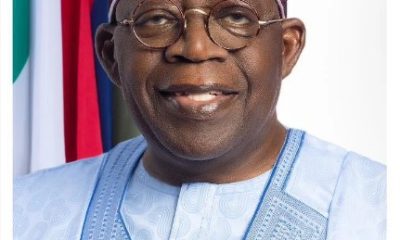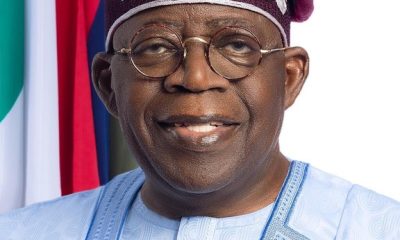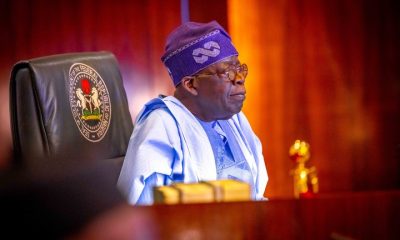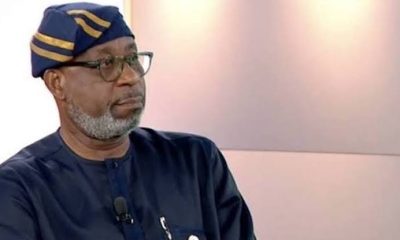Headline
Media not seen as adversary to govt., Says Alake
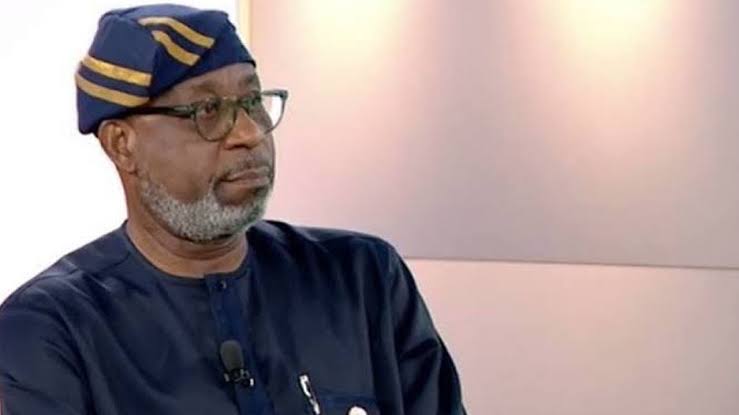
Minister-designate Dele Alake has said that the Federal Government does not see the mass media as an adversary, but a tool to put the administration on its toes.
Alake, current Special Adviser to President Bola Tinubu on Special Duties, Communications and Strategy, made this known at a meeting with media executives on Friday in Abuja.
This said at the end of the day, both the media and government operate in the same society.
“If we are practising adversary journalism and we create problems in our society, where are we going to practise,” Alake asked.
He said the meeting was to seek the understanding and buying-in of the media to ongoing fundamental policy initiatives of the Tinubu government that were necessary for the country’s development.
He implored the media to practise responsive journalism, saying this was critical to avoid heating up the polity and misleading the public.
“When there is genuine course to criticise the government, do it constructively and also suggest and proffer solutions to issues affecting the country.
“It is important that even when we are angry at what is going on in the country, we should still apply that sense of responsibility in our reportage so that even after venting our anger, we will still have a society to live in to practice our profession and thrive,” he said.
Alake explained that government did not see the media as enemy because of its criticism, saying that criticism was part of democracy.
“Criticism you must do because it is an integral part of democracy; however, what is obnoxious is destructive criticism, you have to engage in constructive criticism.
“When you engage in constructive criticism, the person you are criticising will enjoy that criticism because you will be proffering solutions to challenges at the end of the day.
“The language of criticism should not be repulsive as some of our colleagues do, we can always criticise in decent language and make very good points that the recipient will take you very serious,” he said.
On the removal of fuel subsidy by the Tinubu administration, Alake said without confronting the rot and naughty issues in the petroleum sector, we would just be groping in the dark as a country while feeding a few to the detriment of the larger majority.
According to him, if past administrations had been bold enough to remove subsidy on petroleum products, we would have had enduring structures on ground and would not be where we are today.
Alake said Tinubu came to office to make positive impact and to make a name not to acquire material things which he already had.
“The only thing he is fighting for now is legacy and for it to be said that in his life and in his time as president, Nigeria was strengthened out and put on the part of full recovery,” Alake said.
Also speaking at the event, Mr Bayo Onanuga, Director, Media and Publicity of the defunct All Progressives Congress (APC), Presidential Campaign Council (PCC), called on Nigerians to support the Tinubu administration to enable it to deliver on its campaign promises.
Onanuga, a former Managing Director of the News Agency of Nigeria (NAN) also implored the media to try as much as possible to moderate what they pushed out to the public and be mindful of their headlines.
He stressed that the removal of fuel subsidy by the Federal Government was in the general interest of Nigerians, adding that they would get used to it over time.
He called on the media to shift attention to state governments and to interrogate them on how they spent their federal allocations, noting that attention should not just be only on the Federal Government.
“We should support government intervention policies, shift attention to state governments and interrogate them on how they spend their federal allocations and as media gate keepers, we have a lot to do to sanitise this country,“ Onanuga said.
Headline
Fagbemi warns against obstructing EFCC from performing its lawful duty

The Minister of Justice, Lateef Fagbemi, SAN has warned against obstructing the Economic and Financial Crimes Commission (EFCC) from carrying out its lawful duty .
Fagbemi’s warning is contained in a statement in Abuja.
“This is a matter of very grave concern, it is now beyond doubt that the EFCC is given power by the law to invite any person of interest to interact with them in the course of their investigations into any matter, regardless of status.
“Therefore, the least that we can all do when invited, is not to put any obstruction in the way of EFCC, but to honourably answer their invitation.
“A situation where public officials who are themselves subject of protection by law enforcement agents will set up a stratagem of obstruction to the civil and commendable efforts of the EFCC to perform its duty is to say the least, insufferably disquieting’’.
He added that running away from the law will not resolve issues at stake but only exacerbate them.
“Nigeria has a vibrant judicial system that is capable of protecting everyone who follows the rule of law in seeking protection.
“I therefore encourage anyone who has been invited by the EFCC or any other agency to immediately toe the path of decency and civility by honouring such invitation instead of embarking on a temporising self-help and escapism.
“This can only put our country in bad light before the rest of the world’’.
He said institutions of state should be allowed to function effectively and efficiently.
“I stand for the rule of law and will promptly call EFCC, and indeed any other agency to order when there is an indication of any transgressions of the fundamental rights of any Nigerian by any of the agencies’’.
NAN reports that the EFCC had on Wednesday warned members of the public that it was a criminal offence to obstruct officers of the Commission from carrying out their lawful duties.
Section 38(2)(a(b) of the EFCC Establishment Act makes it an offence to prevent officers of the Commission from carrying out their lawful duties. Culprits risk a jail term of not less than five years.
The warning , the EFCC said, became necessary against the background of the increasing tendency by persons and groups under investigation by the Commission to take the laws into their hands by recruiting thugs to obstruct lawful operations of the EFCC.
On several occasions, the anti graft agency said, operatives of the Commission have had to exercise utmost restraint in the face of such provocation to avoid a breakdown of law and order.
Headline
Unknown Gunmen Abduct Channelstv Reporter In Port-harcourt

Some unknown gunmen have kidnapped Joshua Rogers, the ChannelsTV reporter in Port-Harcourt, the Rivers State capital.
Politics Nigeria learnt that Rogers was picked up close to his residence at Rumuosi in Port Harcourt and to an unknown destination by the gunmen around 9pm on Thursday, April 11.
The reporter was driving his official ChannelsTV branded car when the hoodlums accosted, pointed a gun at him and took him away in the same vehicle.
Rogers was said to be returning from his official assignment in Government House after a trip to Andoni for a government event when the incident happened.
Already, the gunmen were said to have contacted his wife and demanded a N30million ransom for bis release.
His cameraman confirmed the incident and appealed to his abductors to set him free unconditionally.

